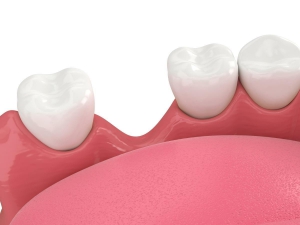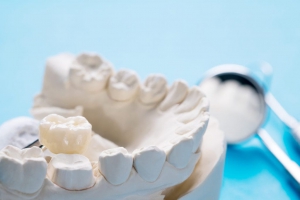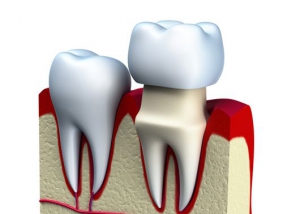Things You Need to Know About Dental Crowns
Things You Need to Know About Dental Crowns
Dentists use dental crowns as an additional layer of protection on tooth enamel. Crowns are temporary, tooth-colored restorations that dentists apply over teeth damaged or destroyed by decay or a filling. There are four dental crowns: fixed, removable, temporary denture-like, and periodontal (tooth-stone) crowns. Each type of crown has its specific benefits and drawbacks. To learn more about dental crowns and their various uses, read on!
What is a dental crown?
 Dental crowns might be the right choice for you if you’re looking for a tooth restoration that is both effective and permanent. Crowns are available in many colors and styles, so you can find one that suits your needs perfectly. The procedure usually takes around two hours, and you’ll be back to work within a few days! So what are you waiting for? Contact a dentist today and schedule an appointment to get started on your dental crowns!
Dental crowns might be the right choice for you if you’re looking for a tooth restoration that is both effective and permanent. Crowns are available in many colors and styles, so you can find one that suits your needs perfectly. The procedure usually takes around two hours, and you’ll be back to work within a few days! So what are you waiting for? Contact a dentist today and schedule an appointment to get started on your dental crowns!
Why are dental crowns used
Crowns are a typical dental restoration used to replace teeth damaged, lost, or replaced due to disease. They are often made from two materials – enamel and dentin – bonded together using special adhesives and then sealed with a ceramic composite material known as a placement layer. Crowns can last up to 10 years but should be regularly checked for any signs of wear and tear by your dentist. In the long run, crowns may provide increased dental health and a more natural-looking smile.
Types of dental crown
Dental crowns may be an option for you if you’re missing teeth. Dental crowns come in three types – cemented, abutment, and partial denture. Cemented dental crowns use a solid material to attach the tooth to the surrounding jawbone. Abutment dental crowns have two parts that fit together like a puzzle; periodic adjustments are needed once it’s in place. Partial denture crowns are made from either porcelain or metal and cover only part of the missing teeth; these must be replaced every six months (depending on wear). Don’t worry. Dental crowns are not as scary as they seem! Once you know a little about them, dental crowns are an easy and affordable way to achieve a beautiful smile.
Cost of dental crowns
There’s no denying that dental crowns are a great way to restore tooth structure and appearance. The cost of dental crowns depends on a few factors, including the complexity of the job, the number of teeth being restored, and the material used in the crown. However, the average cost of dental crowns is around $2,000. So, be prepared to shell out a bit of cash – dental crowns are a worthy investment that will last for years. In addition to looking great, dental crowns can make life feel a lot better. Take the time to discuss your options for dental crowns with your dentist before any work is done. Please ensure you know the different types of crowns and their respective advantages and disadvantages. And last but not least, keep your dental crowns clean and debris-free to achieve the best results!
Crowns are meant to last.
 Dental crowns are essential to dental care and should be replaced every five to seven years, depending on how often you visit the dentist. They’re made from advanced materials and techniques, so they’ll withstand wear and tear. If your crown starts to deteriorate or become loose, contact your dentist as soon as possible. Crowns are an investment, so make sure you get the most out of them by replacing them regularly.
Dental crowns are essential to dental care and should be replaced every five to seven years, depending on how often you visit the dentist. They’re made from advanced materials and techniques, so they’ll withstand wear and tear. If your crown starts to deteriorate or become loose, contact your dentist as soon as possible. Crowns are an investment, so make sure you get the most out of them by replacing them regularly.
Common dental crown issues
Before getting one placed, one must be aware of dental crown issues. These can include infection, displacement, and misalignment. If you notice any of these problems, don’t hesitate to consult with your dentist. They will be able to help you get a crown that fits your individual needs and looks great! Crowns can last up to 10 years, so it’s worth investing in good oral health. Happy crown-wearing!
Candidates for dental crowns
 Dental crowns are a great option if you’re looking to replace one or more decayed, broken, or missing teeth with metal and ceramic fixture that looks and functions like a tooth. Crowns are often used on top (front) teeth because they are the hardest to restore. In addition, suppose you have periodontal disease (gum inflammation), your chances of needing a crown increase dramatically. It would help if you considered several factors when choosing whether to receive a dental crown: severity of the decay, level, and position of existing dentition, facial features; age; and chewing ability. If you’re unsure if a crown is a proper restoration for you, consult with a dentist. They will be able to evaluate your dental health and recommend the best repair for your individual needs.
Dental crowns are a great option if you’re looking to replace one or more decayed, broken, or missing teeth with metal and ceramic fixture that looks and functions like a tooth. Crowns are often used on top (front) teeth because they are the hardest to restore. In addition, suppose you have periodontal disease (gum inflammation), your chances of needing a crown increase dramatically. It would help if you considered several factors when choosing whether to receive a dental crown: severity of the decay, level, and position of existing dentition, facial features; age; and chewing ability. If you’re unsure if a crown is a proper restoration for you, consult with a dentist. They will be able to evaluate your dental health and recommend the best repair for your individual needs.
Book Your Appointment Now
Dental crowns are an essential dental restoration that can restore your smile. Dental crowns are a great option if you’re looking to improve the appearance of your teeth. Make an appointment with a qualified dentist today to get the best crown for your needs and budget. Crowns take time to grow into their new shape, so it’s important to schedule regular checkups with your dentist.
Frequently Asked Questions
What are the three types of crowns?
The three types of crowns are removable, semi-removable, and fixed. Removable crowns come in two colors – natural tooth color (if the tooth is still present) or white. They can be worn for a short period or the lifetime of the restoration. Semi-removable crowns are colored to match your natural teeth and last up to 10 years if properly cared for. Fixed Crowns permanently replace one or more missing teeth with a metal, ceramic, plastic, porcelain, or another material frame that is held together by cementum and Osseous bond(which Acts as an anchor).
How long do dental crowns last?
Dental crowns are usually made of porcelain and can last anywhere from 6 to 3 years. If the height is taken care of properly, it should last up to 10 years. However, crowns may need to be replaced if they chip or crack, if the damage is due to decay or trauma, or if you have a severe toothache that over-the-counter medications cannot alleviate.
What are the disadvantages of dental crowns?
There are a few disadvantages of dental crowns. The most notable is that crowns are a permanent solution for tooth decay and must be replaced every few years. In addition, crowns may not be ideal for people with allergies or sensitivity to materials used in the dental crown, as they may become sensitive to metal or resin used in the crowns. Crowns can also create discomfort if incorrectly fitted, as bone density decreases over time and teeth move around more.
Are dental crowns a good idea?
Dental crowns are often a solution for people who have lost teeth or need extra stability and protection during tooth restoration. There are different types of dental crowns, each with its benefits and drawbacks. Some crowns come in wooden or metal varieties, and depending on their material, they may last anywhere from 6 to 12 months. Taking your dentist’s advice before getting a dental crown is essential, as some patients experience more than expected problems after having one installed. However, dental crowns are a very reliable solution if you’re looking for long-term oral health and oral care.
Are there any benefits to having teeth crowned?
There are many benefits to having teeth crowned with a dental crown. These include: – Crowns that can help in protecting your teeth from decay, injury, and other problems. – Crowns also protect against cavities by holding the dentin in place and preventing it from coming out. – Some potential side effects of having teeth crowned may include headaches, sensitivity to hot/cold foods or drinks, or toothache.
Conclusion
Dental crowns are essential to dental care and should be used for dental restoration or replacement. By understanding the different types of crowns, the cost, and the benefits of dental crowns, you can make an informed decision about whether this type of dental treatment is right for you. To book an appointment with our dentist promptly, please head to our website and book your appointment now!



